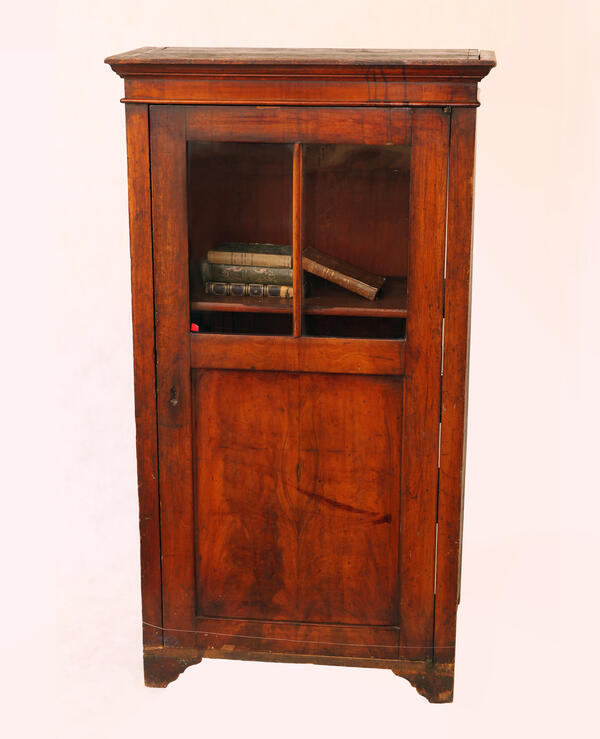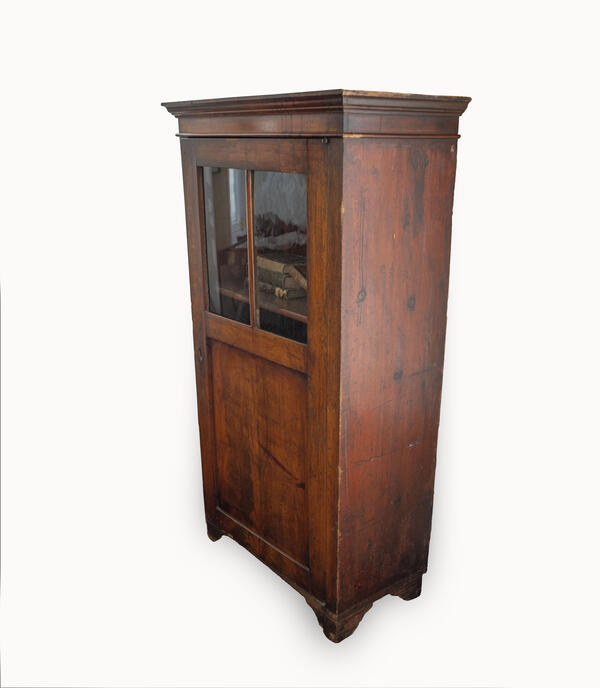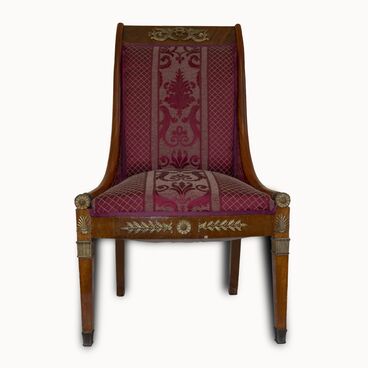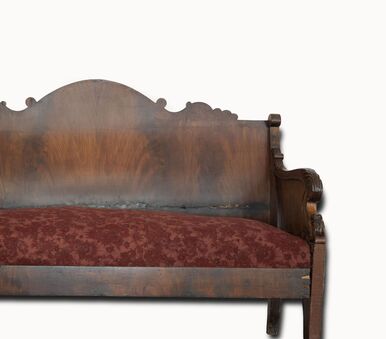The cabinet from the collection of the Decembrists House Museum belonged to Vera Vasilyevna Ivasheva-Cherkesova. She was the youngest of three children of the Decembrist Vasily Petrovich Ivashev, who had lived in Turinsk since 1836. On December 14, 1825, the Decembrist Revolt took place at Senate Square in Saint Petersburg. In July 1826, a trial was held, and Vasily Ivashev was initially sentenced to 20 years of hard labor, after which he was to settle in Siberia for the rest of his life. A month later, his sentence was changed to 15 years. Vera Ivasheva-Cherkesova was born in Turinsk.
Vera Ivasheva was married to Alexander Alexandrovich Cherkesov, a nobleman and the son of a wealthy landowner. He shared the views of Alexander Herzen and Nikolay Ogarev and was engaged in bookselling and educational publishing. Cherkesov was a member of the clandestine organization “Land and Liberty” and organized an illegal printing house in the Novgorod governorate in 1862. He then went abroad and returned in 1865. Cherkesov published books on medicine and physical and social sciences. In 1872, he printed the collected works of Alexander Radishchev.
In 1868, Alexander Cherkesov opened a store and a rental library called “Library for Reading” at 54 Nevsky Prospekt. It was considered the best among private city libraries (currently it is the Central City Public Library named after Vladimir Mayakovsky). The famous bibliologist Nikolai Rubakin noted that in the 1870s only two Saint Petersburg libraries had a sensible and rich choice of science books — the Cherkesov and Makalinskya libraries.
The Cherkesovs had a son Yuri and two grandchildren — Yuri and Vsevolod. Vsevolod Yurievich Cherkesov was born in Saint Petersburg into a family of geologists. After graduating from school, he entered the Petrograd Mining Institute and then transferred to the Department of Paleontology. In his student years, he participated in geological expeditions. He was a recognized specialist in the fields of paleontology and stratigraphy, as well as a researcher of Eastern Siberia and the Russian North. In 1938, he fell victim to false accusations and was shot. In 1957, he was rehabilitated.
Vsevolod Cherkesov inherited the cabinet with a glazed door from his grandmother Vera Vasilyevna Cherkesova.
Vera Ivasheva was married to Alexander Alexandrovich Cherkesov, a nobleman and the son of a wealthy landowner. He shared the views of Alexander Herzen and Nikolay Ogarev and was engaged in bookselling and educational publishing. Cherkesov was a member of the clandestine organization “Land and Liberty” and organized an illegal printing house in the Novgorod governorate in 1862. He then went abroad and returned in 1865. Cherkesov published books on medicine and physical and social sciences. In 1872, he printed the collected works of Alexander Radishchev.
In 1868, Alexander Cherkesov opened a store and a rental library called “Library for Reading” at 54 Nevsky Prospekt. It was considered the best among private city libraries (currently it is the Central City Public Library named after Vladimir Mayakovsky). The famous bibliologist Nikolai Rubakin noted that in the 1870s only two Saint Petersburg libraries had a sensible and rich choice of science books — the Cherkesov and Makalinskya libraries.
The Cherkesovs had a son Yuri and two grandchildren — Yuri and Vsevolod. Vsevolod Yurievich Cherkesov was born in Saint Petersburg into a family of geologists. After graduating from school, he entered the Petrograd Mining Institute and then transferred to the Department of Paleontology. In his student years, he participated in geological expeditions. He was a recognized specialist in the fields of paleontology and stratigraphy, as well as a researcher of Eastern Siberia and the Russian North. In 1938, he fell victim to false accusations and was shot. In 1957, he was rehabilitated.
Vsevolod Cherkesov inherited the cabinet with a glazed door from his grandmother Vera Vasilyevna Cherkesova.




